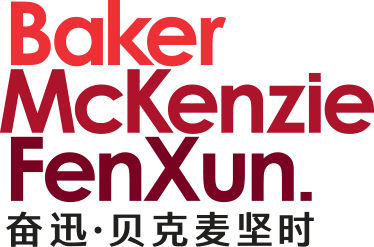In brief
More than one year since China’s new Export Control Law (“ECL”) became effective, the Ministry of Commerce (“MOFCOM”) has finally released the long-awaited Regulations on Dual-use Item Export Control (“Draft Regulations”) draft, for public comments on 22 April 2022.
The Draft Regulations can be found here: 关于《两用物项出口管制条例(征求意见稿)》公开征求意见的通知 (mofcom.gov.cn).
We highlight below the key takeaways from our review of the Draft Regulations.
1. Scope of items subject to controls
Although the Draft Regulations relate specifically to the imposition of export controls on dual-use items, the Draft Regulations also include a provision that allow the regulators to apply the rules to the export of non-dual-use items controlled by China, where the relevant regulations leave gaps to be filled. We envisage that such non-dual-use items may include the export of technologies (e.g., IC design, AI, etc.) that are currently regulated under a separate legacy technology import and export control regime, which sits alongside the ECL. If this is indeed the intention, then this legacy regime may be eventually integrated into the broader regulatory framework of ECL.
2. Export control classification and country of destination control
Currently, dual-use items subject to export control under the ECL are identified based on the technical descriptions as well as the accompanying tariff classification codes for the items. The Draft Regulations contain references to the establishment of “export control classification codes” and “country of destination risk grading system” suggesting that China may eventually adopt systems similar to Export Control Classification Number (“ECCN”) and Country Chart under the US Export Administration Regulations (“EAR”) regime. This approach will be in line with MOFCOM’s overall objective to promote adherence with international export control regimes.
3. Prohibition to accept investigations by foreign authorities
The Draft Regulations specifically prohibit Chinese individuals and companies from cooperating or committing to cooperate with agents of foreign governments in on-site export control interviews or investigations conducted in China (e.g. which may include end-use/user checks) without MOFCOM’s approval. It is unclear how MOFCOM’s approval may be obtained under this requirement, and how such restriction may impact compliance and ability to secure export permits under foreign export control regimes.
4. General license regime
The Draft Regulations provides for two licensing options, i.e. (i) “general license” regime, pursuant to which an export license issued can be applied to the export to multiple end-users with respect to multiple items within a period of two years; and (ii) “specific license” regime, which pursuant to which an export license issued can be used for the export of specific item to a specified end-user.
The availability of the “general export license” will depend on various factors, including the export control compliance status and the implementation of the internal compliance program (“ICP”), exporter’s export records and the historical license application record for the past two years, relevant transaction flows and sales channels, etc.
5. License exceptions
The license exceptions provided for in the Draft Regulations are much welcomed and are expected to facilitate business operations in the scenarios described below:
- the re-export of goods brought into China for maintenance, testing or inspection back to the country of export within a reasonable period of time;
- the re-export of goods brought into China for the purposes of exhibitions held in China, to the country of export immediately after the exhibition ends;
- the export of civil aircraft parts and components for maintenance purposes;
- other circumstances prescribed by MOFCOM.
An exporter who believes that its export is exempted from licensing requirement under the above-mentioned circumstances may register with MOFCOM before exporting.
6. End-use controls
Where there is a change in the end-use of an exported item, obligation is placed on the foreign end-user of the exported items to apply to MOFCOM (through the Chinese exporter) for approval of the anticipated end-use change.
7. Catch-all provision
For export transactions that fall within the scope of the catch-all provision, (i.e. with respect to export of items not included on any control lists), the exporter as well as the foreign importer are obliged to report to MOFCOM any risks to national security and interest, risk of involvement in weapons of mass destruction and risk of terrorism with respect to the use of the item within three years after the date of exportation.
8. Blacklist regime
More specific provisions are made for the importer or end-user “blacklisting” under the ECL, which is largely the equivalent of the Entity List under the EAR, to provide for the denial of general license and license exceptions where the item is exported to any blacklisted importer or end-use, and procedures for seeking delisting.
9. Responsibilities of the third parties
Further to the ECL, the Draft Regulations further emphasize on the responsibilities of third parties involved in the supply chain, such as brokers, agents, forwarders, e-commerce platforms, financial service providers, etc., when facilitating an export transaction prohibited under the ECL. In particular, any person or company engaged in the provision of agency, freight, delivery, customs declaration, third-party e-commerce trading platforms, and financial services shall immediately cease such activities and report the same to MOFCOM upon discovery of any exporter engaging in export control violations.
10. Multi-agency collaboration regulatory regime
The Draft Regulation, which is slated to be issued by the State Council (i.e., China’s cabinet), once formally adopted will put in place a mechanism for MOFCOM to work with other governmental agencies, including China’s top agencies in charge of public security, national security, financial regulation, market regulation, customs, public transportation, etc., in enforcement actions.
11. Internal Compliance Program
The implementation of an Internal Compliance Program (“ICP”), while not mandatory, is encouraged to accord the exporter certain benefits including the grant of general export license and penalty mitigation in case of violation.
12. Re-export controls
Similar to the ECL, there is a reference to “re-export” in the Draft Regulations without further elaboration, which suggests that MOFCOM has yet to decide on the implementation of an “re-export” control which would have an extraterritorial reach.
_______________________________________________
Frank Pan is a senior counsel and Tina Li is an associate of FenXun Partners who is a premier Chinese law firm. FenXun established a Joint Operation Office with Baker McKenzie in China as Baker McKenzie FenXun which was approved by the Shanghai Justice Bureau in 2015.

Baker & McKenzie FenXun (FTZ) Joint Operation Office is a joint operation between Baker & McKenzie LLP, an Illinois limited liability partnership, and FenXun Partners, a Chinese law firm. The Joint Operation has been approved by the Shanghai Justice Bureau. In accordance with the common terminology used in professional service organisations, reference to a “partner” means a person who is a partner, or equivalent, in such a law firm. This may qualify as “Attorney Advertising” requiring notice in some jurisdictions. Prior results do not guarantee a similar outcome.
This client alert has been prepared for clients and professional associates of Baker & McKenzie FenXun (FTZ) Joint Operation Office. Whilst every effort has been made to ensure accuracy, this client alert is not an exhaustive treatment of the area of law discussed and no responsibility for any loss occasioned to any person acting or refraining from action as a result of material in this presentation is accepted by Baker & McKenzie FenXun (FTZ) Joint Operation Office.






